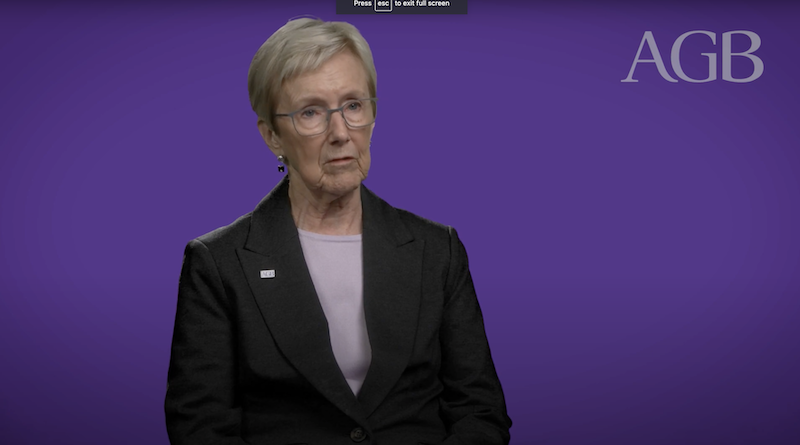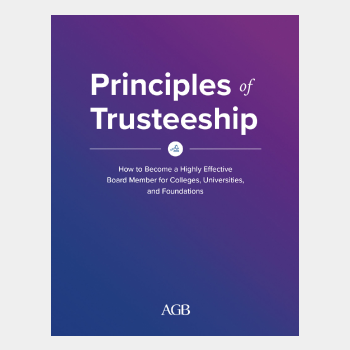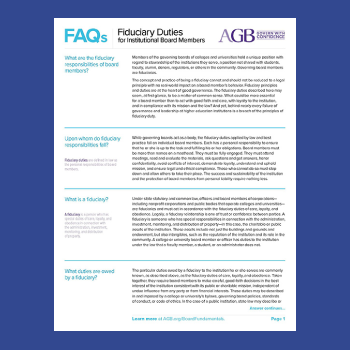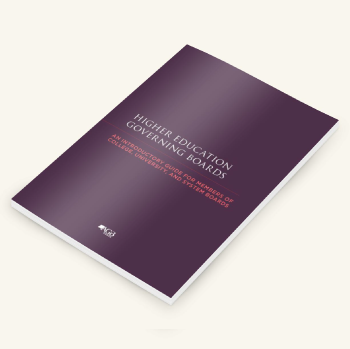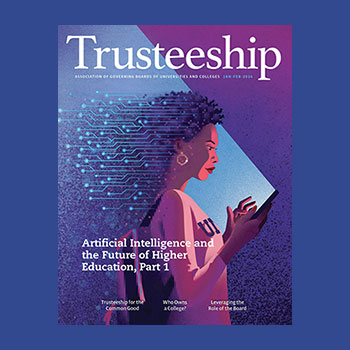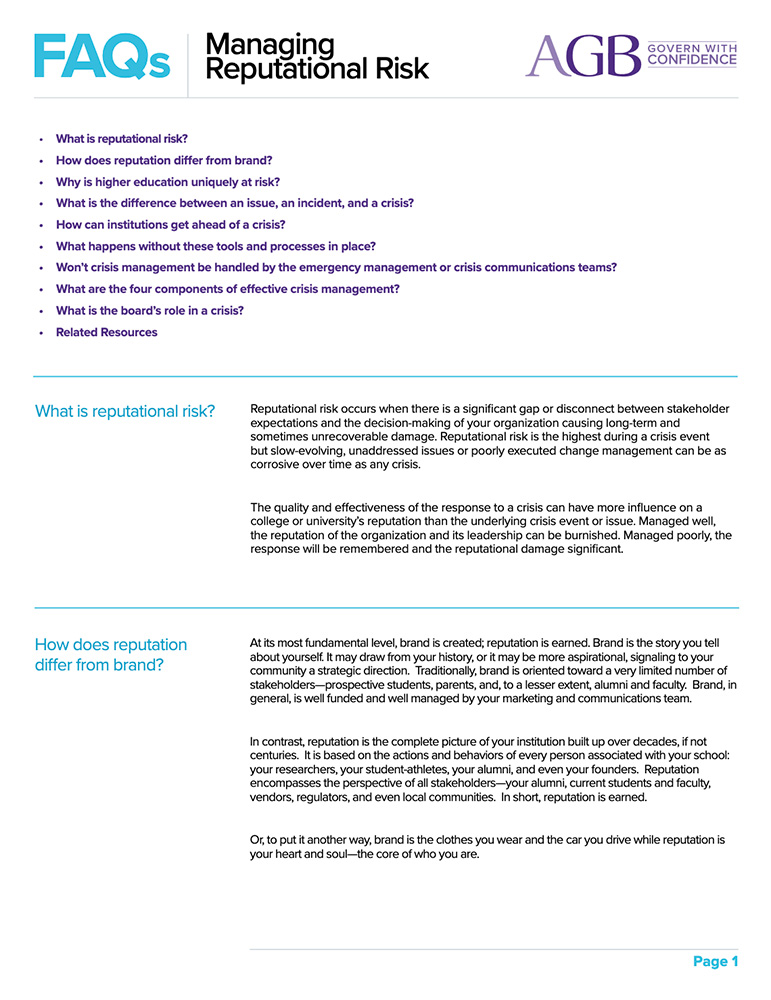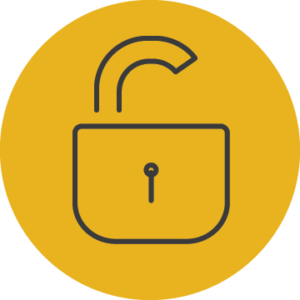Why this is important.
While the authority of a governing board lies in the collective action of its members, each individual trustee contributes to— or limits— the effectiveness of the board.
Each board member must rise to the challenge of aligning their work with the governing board and administration in order to best serve their institution’s mission. AGB empowers all board members to become highly effective trustees who fulfill their fiduciary duties and govern with confidence.
Learn why courage is a crucial characteristic for every board member to embody, according to Ellen Chaffee, PhD, AGB interim president and CEO.
Questions for boards.
Click below to reveal key questions for your board to consider:
Board and Institution Fundamentals
Consequential Questions:
- What is my level of engagement as a board member during meetings? Between meetings? What prevents me from being more engaged?
- How do my behaviors, actions, and reputation reflect on the institution on whose board I serve?
Board Discussions
Consequential Questions:
- What is the work of our board? How does it advance the institution’s focus and future?
- How has higher education changed since I was a student? How has my institution changed in the last 10 years? How might it change in the next 10 years?
- What experiences do I bring to board service? What experiences do other trustees bring? What perspectives are missing?
- What has my board done to demonstrate a commitment to racial equity and social justice? How has my board educated itself on diversity and inclusion? What have I done personally?
- What decision am I being asked to make in this situation? What is the appropriate level of board— and trustee— involvement?
Board Relationships
Consequential Questions:
- What knowledge, skills, and abilities do I have that could be useful to the administration? How do I share my expertise and experience without crossing the line into management?
- What do constituents think of my institution? The board? How does the institution look from different points of view?
- How open is my board to dissenting opinions? How are tensions among board members handled?
Recommended resources.
We carefully curated these staff-picked resources for you:
Board Member Orientation
Program
AGB
Board Independence Under Fire, Part I
Podcast
With Ellen Chaffee, Jill Derby, and David Maxwell
Between Oversight and Overreach—
Trusteeship magazine, January/February 2024
By Simon Barker


